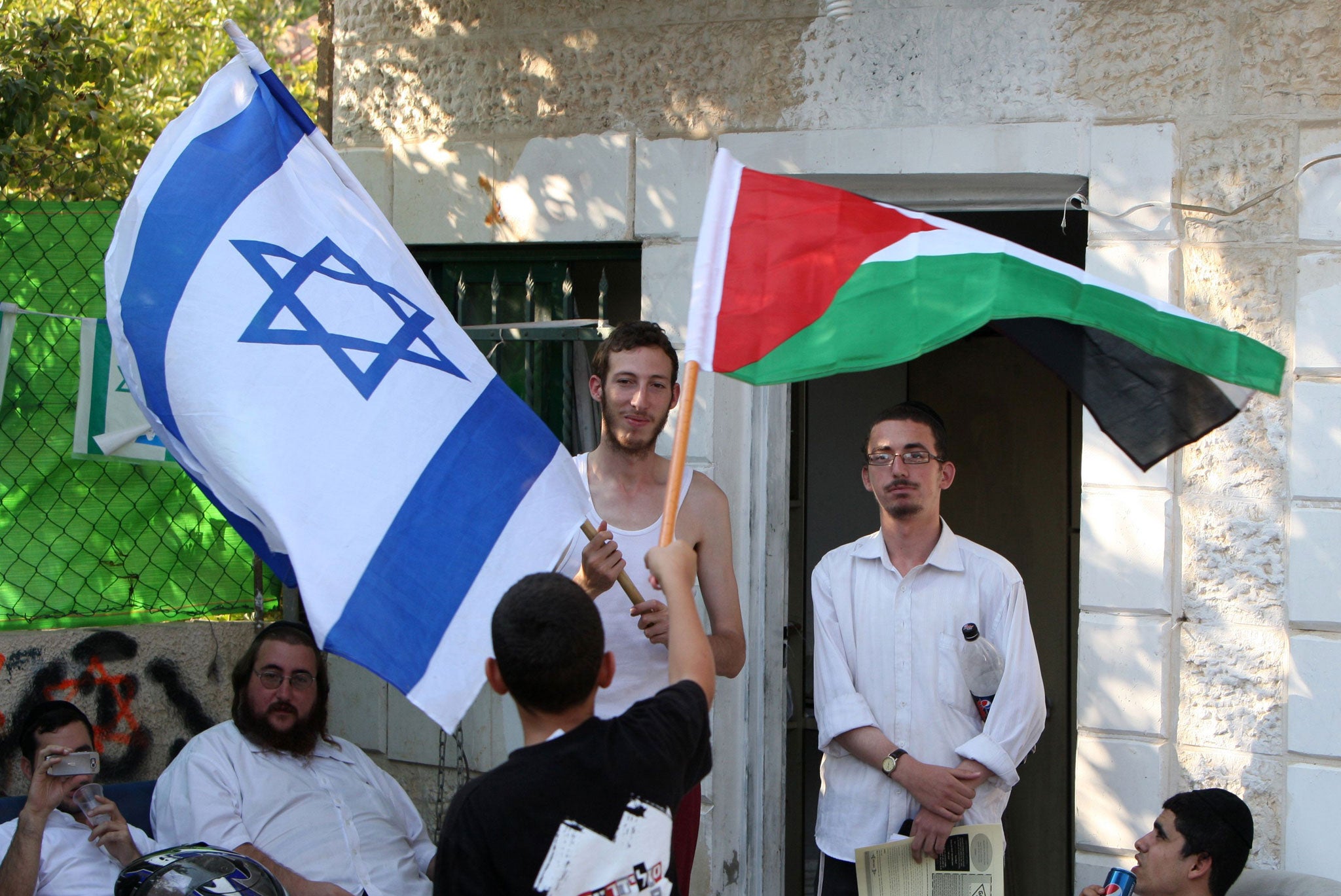Your support helps us to tell the story
From reproductive rights to climate change to Big Tech, The Independent is on the ground when the story is developing. Whether it's investigating the financials of Elon Musk's pro-Trump PAC or producing our latest documentary, 'The A Word', which shines a light on the American women fighting for reproductive rights, we know how important it is to parse out the facts from the messaging.
At such a critical moment in US history, we need reporters on the ground. Your donation allows us to keep sending journalists to speak to both sides of the story.
The Independent is trusted by Americans across the entire political spectrum. And unlike many other quality news outlets, we choose not to lock Americans out of our reporting and analysis with paywalls. We believe quality journalism should be available to everyone, paid for by those who can afford it.
Your support makes all the difference.The thunderous warfare of the past summer in Gaza has ebbed, and the disturbing images that graced television screens have since stopped. Though for Israelis and Palestinians living in the region, there is no cause for celebration this autumn. The start of the summer marked the 47th year of the occupation of the West Bank and the Gaza Strip. If nothing changes within the next three years, we will mark half a century of occupation with no end in sight. Generations of Israeli children are born in Israeli settlements in the occupied territories, and generations of Palestinian children grow up under the horrors of occupation. Both groups of children know no other reality.
First and foremost, the occupation is a monumental injustice against the Palestinian people. Settlements and illegal outposts contribute to the expropriation of land beyond the green line – sometimes even privately registered land. Palestinian access to water resources and land is restricted; their right to plan their lives and futures freely disappears; freedom of movement within the West Bank, and between Gaza and the West Bank, is limited; and they are forced to live under the constant watchful eye and clenched fist of the Israeli Defense Forces. The occupation does not only harm the victims under its rule, it also threatens Israelis. After nearly half a century, it is clear that we can no longer relate to the occupation as a temporary situation. Each additional building in the settlements, and every separate road for Israelis and Palestinians in the West Bank, propels Israel another step forward toward an apartheid reality, from the river to the sea. Each such step increases the threat towards the existence of the sovereign state of Israel, as envisioned by its forefathers.
The resolution to this threat will not be found in yet another sophisticated new aircraft, through an advanced defense system, or empty statements about negotiations that are not backed by concrete actions. The only solution lies in the establishment of two sovereign states, Israel and Palestine, coexisting side by side along the 1967 borders. Not only are we aware of the solution, but we also know the Palestinian partner for its realization. Mahmoud Abbas has repeatedly demonstrated his commitment to the two-state solution, and his adherence to nonviolence. To my dismay, the Israeli government, which has the upper hand in power relations between the nations, has repeatedly demonstrated that it is not interested in ending the occupation or reaching an agreement. This is seen through continual construction of settlements, and refusal to sit at the negotiating table in recognition of the legitimate Palestinian demand for national freedom and sovereignty. In such a situation, Abbas’ appeal to the United Nations is a necessary step. Israeli and Palestinian advocates for peace cannot change the reality in the region alone. We need the help of the international community. Only pressure applied by its hands has the power to lead to actual changes in Israeli policy.
As an Israeli citizen with many years of public service on behalf of my country behind me, I am disappointed by the reports of the United Kingdom’s intention to defer Abbas’ initiative to the United Nations Security Council. According to publications, the proposed initiative affirms the principle of two states as a basis for the resolution of the Israeli Palestinian conflict. It requests that the international community both recognize a Palestinian state along the 1967 borders, and establish a timetable for lifting the blockade and ending the occupation. Israelis and Palestinians have no spare time to wait for an end to the occupation, and this initiative conveys the urgency. It proposes that the international community practically express its support for the existence of two sovereign states in the region, through just negotiations on a more fair and equal playing field. Rejection of the proposal will in effect reward the state of Israel with both the continuation of the occupation, and the construction of obstacles to obstruct any possibility of ending it and the conflict. This expression translates into an acceptance of the dangerous painful reality of occupation, indefinitely.
Tomorrow, the British Parliament will vote on a bill that proposes the recognition of a Palestinian state. Such recognition will not harm Israeli interests. On the contrary, only the establishment of a sovereign Palestinian state will ensure the continued existence of the sovereign state of Israel along the green line, and will save us from our ongoing deterioration down the slippery slope of apartheid. Within this current reality, only recognition of a Palestinian state is capable of re-launching negotiations geared toward ending the conflict. As such, true friends of Israel should raise their hands in support of this proposal and vote yes for the state of Israel, yes for the state of Palestine, and yes for peaceful coexistence, equality and justice for all people in the region.
Dr Alon Liel served as the Director General of Israel's Ministry of Foreign Affairs and as the Israeli ambassador to South Africa

Join our commenting forum
Join thought-provoking conversations, follow other Independent readers and see their replies
Comments